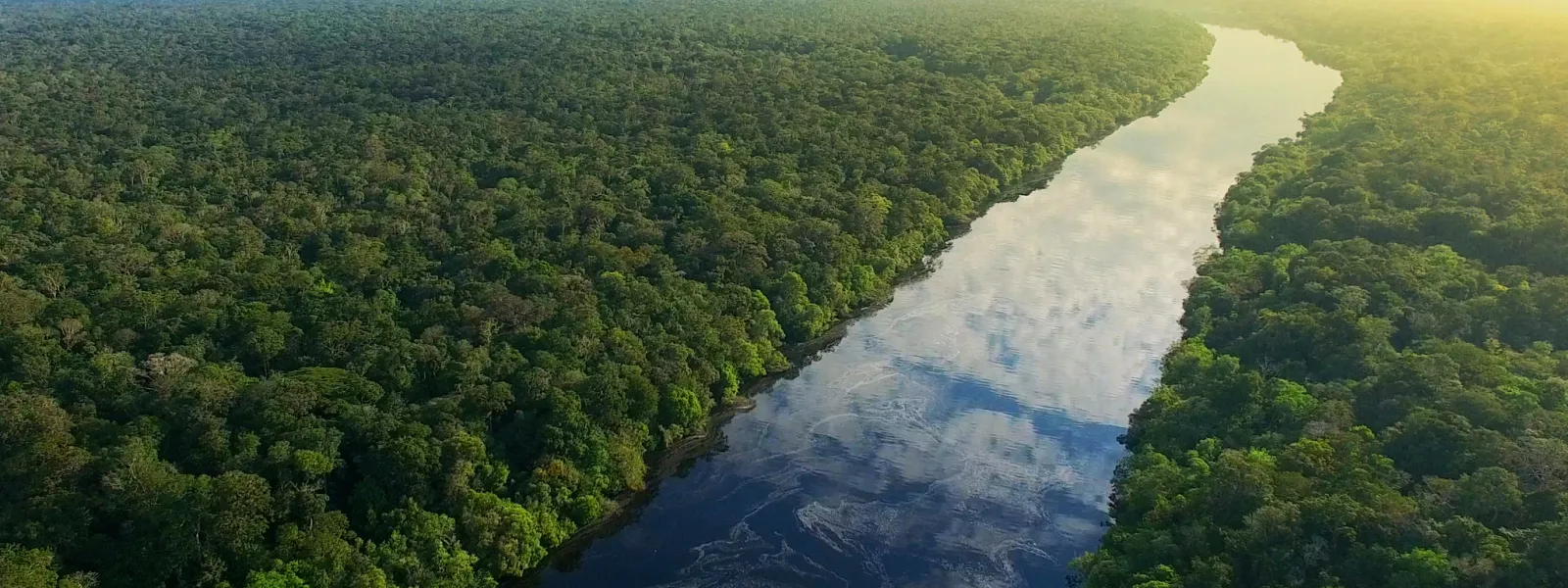
10 legal advances toward climate justice in 2024
Photo: Shutterstock.
If there is one thing we've seen in the world this year, it's the advancement of climate litigation and the publication of new guidelines and best practices with future generations in mind. We know that the climate fight can often seem exhausting, but today we invite you to take a breath and celebrate the good news and small victories that are bringing us closer to climate justice.
1. The climate emergency comes before the Inter-American Court
This year, a very important question came before the Inter-American Court of Human Rights (IACHR): What obligations do States have to protect people, especially those in vulnerable situations, from the effects of the climate crisis?
Colombia and Chile asked the Court for an advisory opinion to answer this question. To this end, the Court called for public hearings with unprecedented participation. AIDA testified before the court and we supported communities, organizations and civil society alliances through the productions of 15 amicus briefs. We expect their pronouncement in the first half of 2025.
Learn more about the voices that arrived to the Court.
2. Inter-American Court highlights climate in landmark ruling on a healthy environment
In March, the Inter-American Court of Justice found the Peruvian state guilty of violating the rights of the inhabitants of the town of La Oroya to a healthy environment, health, personal integrity, a life of dignity, access to information, political participation, judicial guarantees and protection, and the right to childhood. It was an unprecedented decision for failing to act in a timely and effective manner to protect the residents from extreme levels of pollution from a metallurgical complex that has operated in their community for almost 90 years.
In its ruling, the Court highlighted the relationship between the protection of children and action on climate change, stating that the protection of children requires the adoption of effective measures to prevent and mitigate the risks to their health caused by the emission of polluting gases that contribute to climate change.
Learn more about the case's legal contributions.
3. Brazil's biggest trial on climate impacts
In July, a cattle rancher was sentenced to pay more than US$50 million for destroying part of the Brazilian Amazon rainforest and ordered to restore the affected area. The decision is seen as a milestone in the fight against illegal deforestation in the country and sets a precedent for future legal action.
This is the largest lawsuit ever brought by the Brazilian Attorney General's Office for damage to the rainforest. It was filed by the Brazilian Institute for the Environment and Renewable Natural Resources (IBAMA) and seeks compensation for climate damage caused by greenhouse gas emissions from the burning of vegetation and the loss of carbon sinks from deforestation. The court stressed the importance of holding violators accountable and restoring the Amazon ecosystem.
Learn more: The Guardian and Climate Case Chart.
4. Landmark victory for island nations at the International Tribunal for the Law of the Sea
Small island states have won a resounding victory at the International Tribunal for the Law of the Sea. The unanimous ruling established that the 169 signatory states to the United Nations Convention on the Law of the Sea have an obligation to reduce greenhouse gas emissions as marine pollution. This decision strengthens the struggle of island nations, which are least responsible for the climate crisis but face its worst consequences. The ruling sets a global precedent by underlining that compliance with the Paris Agreement is not enough and that concrete action and accountability are required from the major powers.
Learn more: Grist, EuroNews and High Commission on Human Rights.
5. Ruling urges regulation of carbon credits in indigenous territories
Colombia's Constitutional Court has issued a ruling highlighting the importance of protecting the rights of indigenous communities in carbon credit projects, in a case involving the Pirá Paraná indigenous territory. The ruling, which defends the self-determination of communities, underlines the need for clearer regulations and an approach that guarantees their participation and respect in these projects. The decision has been welcomed as a positive step by both indigenous communities and carbon market actors, who believe it will provide greater legal certainty and strengthen the sustainability of environmental projects.
Learn more: La Silla Vacía and Corte Constitucional.
6. Mexico Recognizes First Climate Displaced and Orders Relocation
In an unprecedented development in Mexico, the first families displaced by climate change have been relocated to new homes in Tabasco. The residents of El Bosque, a fishing community affected by sea erosion, received 51 houses from the federal government, marking the beginning of official recognition of climate impacts in the region. After years of uncertainty, these families, who saw their homes swallowed by the sea, describe their relocation as "a dream come true." While there is still work to be done to count all those affected, this step is a crucial step towards climate justice and the protection of vulnerable communities.
Learn more: Nuestro Futuro, Greenpeace and El País.
7. A global commitment to move beyond fossil fuels
The UN General Assembly adopted the Compact for the Future, an agreement that reaffirms the commitment of members to accelerate the transition to renewable energy. The Compact, the result of years of negotiations, sets clear goals such as tripling global renewable energy capacity and doubling energy efficiency by 2030. It also commits to a "just phase-down" of fossil fuels, recognizing the need for a global transition to a cleaner and more sustainable energy system. While it remains to be seen how these goals will be implemented, the agreement marks a significant step forward in reducing the use of fossil fuels.
Learn more: Pacto por el Futuro and EuroNews.
8. South Korea Recognizes Climate Crisis as Constitutional Issue
In a landmark ruling, the Constitutional Court of Korea declared parts of the Carbon Neutrality Act unconstitutional because the law does not set greenhouse gas reduction targets beyond 2030, thus shifting the burden of climate action to future generations. This is a significant development for climate litigation globally, as it is the first time that the climate crisis has been recognized as a constitutional issue in the country, and the rights of future generations have been recognized.
Learn more in the Plataforma de Litigio Climático.
9. UN launches principles to prioritize equity in energy transition
The United Nations Panel on Critical Minerals for Energy Transition has issued key recommendations to ensure the fair, equitable and sustainable management of these minerals, which are essential for the transition to renewable energy. The report emphasizes the importance of prioritizing human rights and social equity, especially in regions such as Latin America where large reserves of these minerals are found. The proposal includes seven guiding principles, ranging from environmental protection to international cooperation, with the aim of promoting sustainable development and equity in developing countries.
Learn more: AIDA and the UN Principles.
10. Climate crisis reaches the International Court of Justice
We close the year with hearings at the International Court of Justice on the legal obligations of governments to protect the environment and curb climate change. Initiated by a group of law students from Vanuatu, this case could set important legal precedents for global action on climate change. The ICJ is expected to issue an advisory opinion in 2025 that could strengthen international cooperation and assistance to vulnerable countries, promoting a more effective approach to addressing climate challenges and protecting human rights.
Learn more: The Conversation.
BONUS: The Climate Litigation Platform continues to grow
With so much progress to serve as inspiration, the Climate Litigation Platform for Latin America and the Caribbean continues to grow in information, membership and cases. This project, the result of the collaboration of organizations and professionals, is an effort to continue promoting climate litigation and supporting those who want to learn more and work for environmental justice.
Laura Yaniz Estrada

Laura Yaniz Estrada was part of AIDA's communications team. She holds a master's degree in Journalism and Public Policy from the Centro de Investigación y Docencias Económicas (CIDE). She holds a degree in Media and Journalism from the Instituto Tecnológico y de Estudios Superiores de Monterrey (ITESM) and a diploma in National Security from the Instituto Tecnológico Autónomo de México (ITAM). She is interested in new narratives and environmental security.
